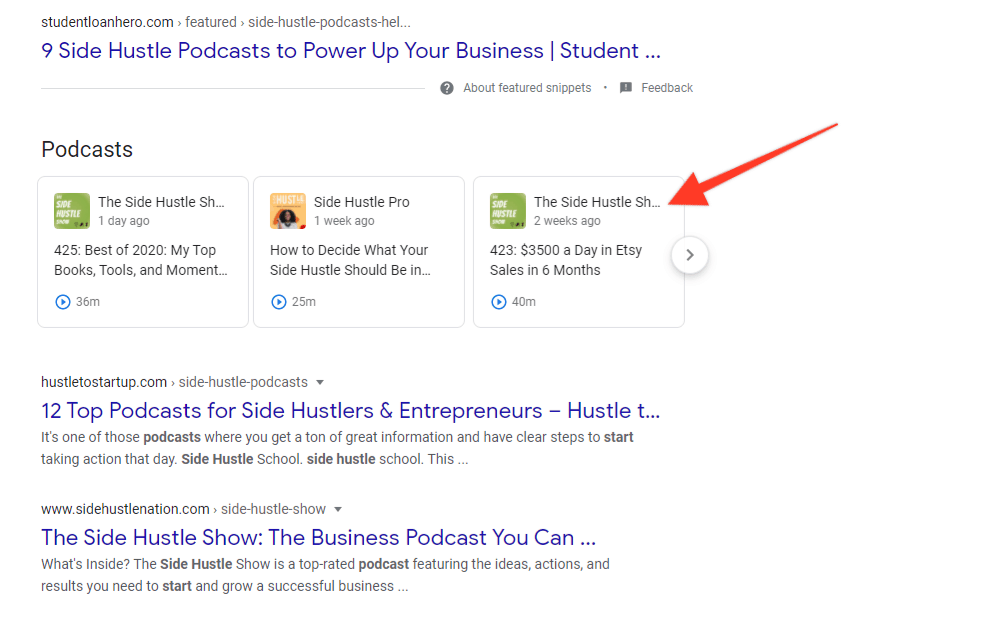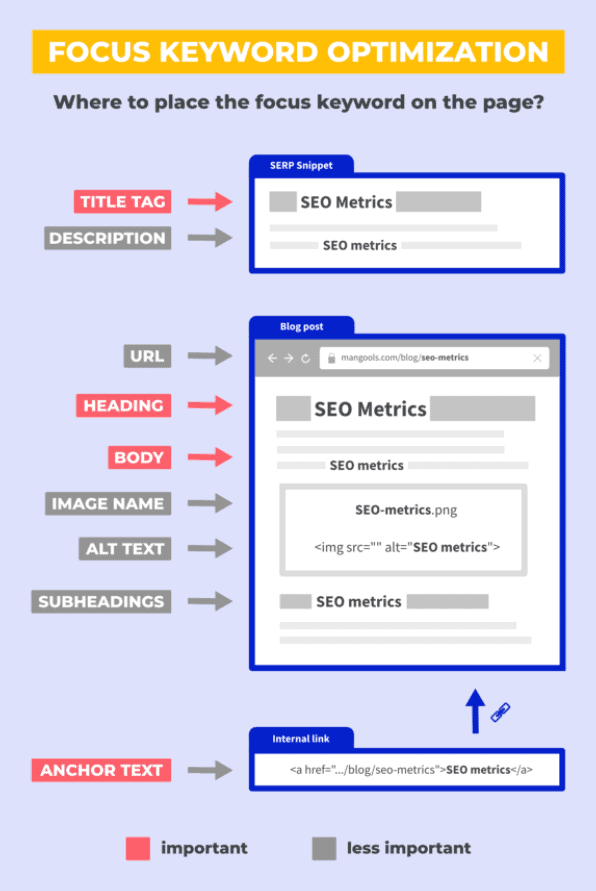When you think of optimizing your podcast for SEO, things that come to mind include keywords, how to target keywords, and a strong content strategy. However, most people don't make the connection between podcasting and search engine optimization, missing out on some important growth opportunities. In this post, we discuss SEO for podcasts, including SEO tips for podcasts that can introduce your podcast to new audiences and contribute to your brand's ranking authority on Google.
It's no surprise that podcasts, an audio format, aren't typically associated with SEO practices. Until recently, Google was unable to index audio content. Starting in mid-2019, Google began scanning audio files for relevance, opening up new territory for podcasts and content marketing.
There are tactics you can use to optimize your podcast for both written and audio content and help it rank higher within search engine results. This means not only more listeners to your podcast, but more visitors to your website and increased brand awareness. Some of these podcast SEO tips overlap with his SEO practices in general, while others are specific to audio content.
In this article, we'll outline how to optimize your podcast, what you need to know about podcast SEO, and explain how you can make your show more SEO friendly.
The Basics: Why is SEO important?
SEO, a key component of digital marketing, helps drive more visitors to your website. SEO (Search Engine Optimization) is the process of ranking sites, pages, and content as high as possible in search engine results.
Of course, the term refers to search engines in general, but SEO today is really about Google. More than 63,000 searches are performed on Google every second, accounting for 92% of all online searches worldwide. For businesses of all kinds, this is a huge opportunity to acquire new customers, but first they need to find you.
In 2019, life doesn't exist beyond the first page of Google. Few users click past the second or third page of results, and many users don't even scroll down past the first few pages. Therefore, to reach your audience, you need to rank as high as possible in her SERP (search engine results page), which is important for the searches your potential listeners make.
What is SEO content marketing? How do podcasts fit in?
There are many things you can do to optimize your podcast website for Google. You can research the most relevant podcast keywords for your audience and include them in strategic locations on your site. You can make sure your site is technically up to date and build authority links that tell Google that your site is trustworthy and your information is valuable.
One of the most effective strategies to stay ahead of your competitors is content marketing. Using content strategically will help your site rank higher, both on your domain and on individual site pages. This content includes blog posts, infographics, and of course podcasts. Content marketing works with his SEO to increase inbound traffic to your episodes. In the next section, we'll discuss how to implement her best SEO practices into her podcast and her website.
To take advantage of the SEO benefits of podcasting, you first need to set up a website. Get started with our 6-step guide to building a custom site using WordPress. Building a website may sound difficult, but it's an important way to promote your podcast that will ensure a return on your investment in the future. This is one of the first steps she recommends for new show hosts when starting a podcast.
Podcast SEO best practices
There are several ways to implement SEO into your podcast. Most of these tactics initially focused on written content, as Google was previously unable to index audio content. These techniques are still valid today, and he's also added new audio-specific tactics to make your podcast SEO-friendly. Follow these podcast SEO tips to optimize your show.
Select podcast keywords for all episodes
This is one of the most important podcast SEO tips on our list. Using proper podcast keywords is essential for any kind of he SEO, and podcasts are no exception. Keywords tell Google that your episode is relevant to a user's search, so it's more likely to show up in the results.


However, this strategy doesn't just mean choosing keywords for your podcast. you I think it's related to podcasts. Instead, the keywords you include should be the ones your target audience is searching for. To determine which keywords these are, you will need to perform detailed keyword research, including SEO competitor analysis.
Try Google Ads Keyword Planner or other tools like Moz's Keyword Explorer to find search terms your audience is already using. These tools are perfect for organizing your podcast's SEO strategy. It shows you your monthly search volume and suggests related keyword phrases you might not have thought of.
Use episode keywords
Google has integrated indexing of audio content, so podcasts can now appear in search results. This is a great opportunity for podcasters because your episodes can show up in any search, not just if a user is specifically looking for a podcast. Make sure your show includes the target podcast keywords your audience is searching for.
An easy way to do this is to choose episode topics based on keywords you've established through research. Use keywords and related words naturally throughout your script. This is important for the best SEO strategy for your podcast.
Include written content in each episode of your podcast
This is also an important way to optimize your podcast, but many podcasters don't bother with it. All you have to do is upload a new episode to your podcast host and hope that listeners will show up.
Google and other search engines easily scan written text to determine if the content is relevant. Providing Google with written content to “load” to supplement your audio content will increase your chances of ranking your episode in search results.
It's important to create a separate page for each podcast episode with text that describes the content and context (as well as the audio player, of course). Not only does this give you more keyword opportunities (more on this later), but it also means that you can rank individual episode pages for searches related to specific topics. More rankings means more traffic, more listeners, and more loyal followers.
There are two easy ways to add written content to your episode page.
First, include your podcast show notes. These are brief summaries, often in bullet point format, that tell potential listeners what they'll find in the episode. It's also a great way to showcase images, graphs, videos, or links mentioned in your episode.


Second, include an audio transcription of your podcast. These are complete word-for-word transcriptions of everything said on the show. If you've already created content (audio), why not reuse it in written form?. This is an easy way to get tons of written content on your pages that Google loves.
When you choose Castos as your podcast hosting service, every episode you publish can be automatically transcribed into a full, word-for-word account of the episode. We partner with industry-leading text-to-speech technology providers to provide a completely seamless transcription experience. Additionally, you can use a podcast editing service to create show notes for each episode.
Place your keywords in the right place
An important element of the text included in each episode is the placement of your podcast's keywords. According to search engines, not all parts of a website are created equal. Google scans certain parts of your post or page first and prioritizes these elements.
The most important places to include keywords are:
- Post title
- Podcast episode title
- subheading
- Post URL
- image file name
- Image ALT attribute
- Beginning and end of page content
- Interspersed naturally throughout the page content


If you include podcast transcripts, show notes, or supplementary blog posts, avoid forcing the podcast keywords into these locations. Google criticizes sites that feature too much “keyword stuff,” meaning keywords, on their pages in order to manipulate search results. If you include target phrases throughout your site, make sure they fit together organically. Start writing your posts with keywords in mind so you don't have to keep trying to fit square pegs into round holes.
Podcast SEO overview
Search engine optimization may seem unimportant for audio-first media, but times have changed. His SEO best practices for these podcasts are an important growth strategy, as Google actively scans the context of audio content.
Fortunately, the strategy is similar to what content marketers have been doing with writing for years. Focus on the podcast keywords that your audience uses within their search queries and include these terms within your podcast.
By optimizing your podcast and increasing your show's authority and ranking in Google's eyes, your episodes will jump to the first page of search results and your show will be discovered by new listeners.
Post written by Tom Buckland. Tom Buckland is a digital marketing and Amazon sales consultant specializing in technical SEO.He is the founder of a digital marketing agency based in Cardiff Head office SEO I live in the UK and have a passion for helping businesses benefit through smart digital marketing strategies.
action
Are you reading to start your own podcast? Learn the nitty gritty details to start your own show with our comprehensive guide. Learn how to start a podcast.


